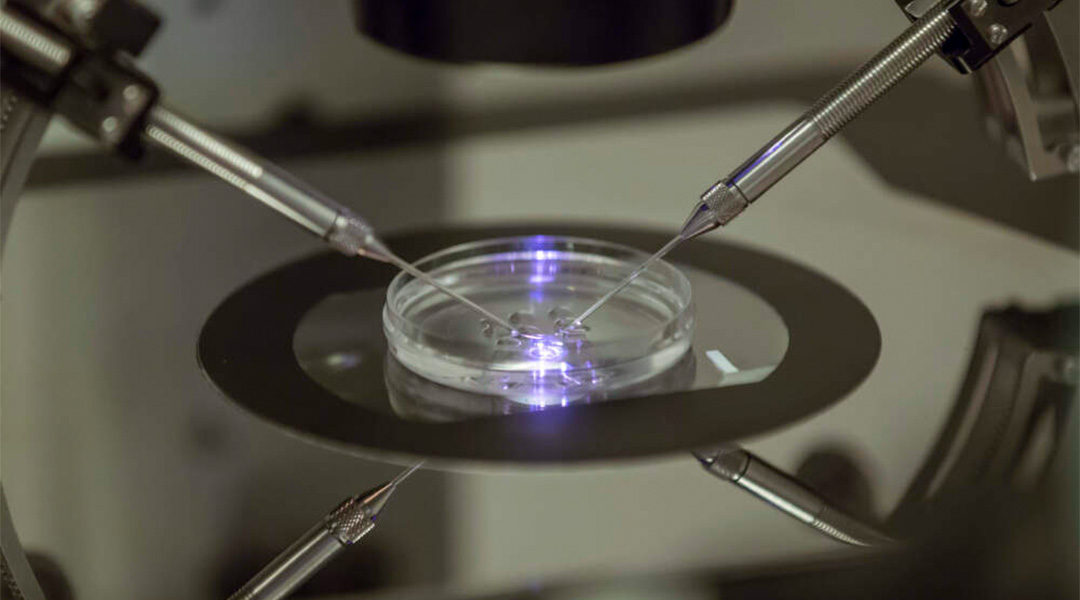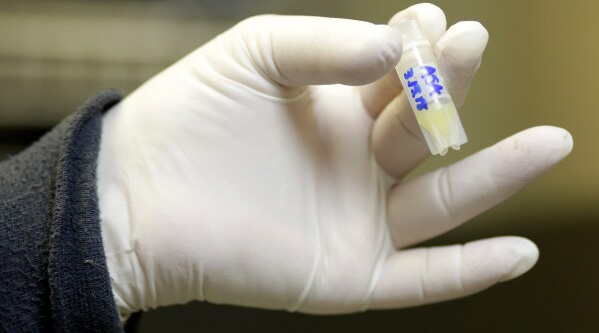IVF is a medical practice that helps soon-to-be mothers who struggle with becoming pregnant. (Associated Press photos/Carolina News and Reporter)
The South Carolina House of Representatives is considering a bill that would protect IVF care after an Alabama decision challenged the reproductive practice there.
Alabama’s Supreme Court ruled Feb. 16 that, under the state’s new abortion laws, embryos are subject to the state’s Wrongful Death of a Minor Act.
“What this all stems from is the abortion debate, right,” said Dr. Edward Tarnawa, medical director at Piedmont Reproductive Endocrinology Group, which provides in vitro fertilization care. “And I don’t have any comment on that. But I will say that there’s nothing more pro-life than what we’re doing.”
Some S.C. IVF clinics think their practice is safe from potential rulings that could affect the disposal of an embryo, which often happens as part of the process.
Rep. Jerry Carter, R-Pickens, is a co-sponsor of the S.C. bill that would amend S.C. law to clarify that a fertilized egg or human embryo existing outside of the uterus will not be called a human being.
“I think we should get ahead of, ahead of this, based on Alabama action,” Carter said. “So I’m pleased that we’ve got the bill coming forward and pleased to be a co-sponsor.”
Rep. Chandra Dillard, D-Greenville, is another co-sponsor, said IVF care is an effective and important treatment.
“There are healthcare professionals, there are scientists that are involved in this process,” she said. “And when the government is (overreaching), this is what you have. You have a disaster, in my opinion.”
Kay Cabaniss, a mother of IVF triplets in Spartanburg, said she could not imagine going through the process with fewer eggs. However, she ended up donating the embryos she did not use to other couples.
“Cutting that procedure, you know – can’t have that,” she said.
Legislators in many states are introducing similar bills, even in Alabama.
Alabama lawmakers are moving quickly to protect IVF care, possibly passing a new law as early as next week.
Dr. Jeris Cox, owner of Adore Fertility LLC in Mount Pleasant, said she’s not worried about any affect on her practice because South Carolina’s law isn’t the same as Alabama’s.
“It is reasonable to have fear when we don’t understand something,” Cox said in an email. “It is reasonable to be afraid that laws could/may (possibly) be made in the future that could change our landscape, but as of right now, nothing has changed.”
Tarnawa said it’s important to understand the process of IVF to understand the importance of having access, for example, knowing the differences between eggs, embryos and fetuses.
“Using terms such as ‘extra uterine children’ or ‘cryogenic nurseries,’ simply highlights ignorance,” he said.
It’s important to note that 20% of couples face infertility, even in their most fertile reproductive years, Tarnawa said.
Retrieving more than one egg is essential to the process, Tarnawa said. Clinicians give patients an injection of a follicle-stimulating hormone that causes more eggs to be produced.
“The majority of fertility treatments are successful because they have this primary aim of overcoming that one element of human reproduction and efficiency by making, you know, by giving us more eggs to work with,” he said.
After retrieval, the clinic incubates the eggs and monitors them for fertilization. Clinicians then continue monitoring until the new embryo gets to the blastocyst stage. Embryos at this stage do not necessarily move to the implantation stage or create a pregnancy.
“The vast majority have absolutely no reproductive potential in the IVF process,” Tarnawa said.
To decide which of the eggs are used, doctors need to decide which are chromosomally normal, he said. The majority of abnormal chromosomal eggs will not implant or will lead to a failed pregnancy.
“The most likely outcome is it does not implant – a negative pregnancy test,” he said. “But sometimes they do, and they result in early miscarriages, the normal natural outcome for an embryo which is chromosomally abnormal because it has no potential for life.”
Using multiple eggs creates a greater chance of pregnancy.
The process is expensive, and to have a lower chance of a successful pregnancy would make the treatment unaffordable for many, Tarnawa said.
“We could do IVF with a single egg, but it would be essentially as inefficient as the normal processes,” he said.
Carter is optimistic the S.C. bill will pass.
“I have high hopes it has bipartisan support at this moment,” Carter said.
The best part of the events in Alabama is the conversation about IVF that it created, Cox said.
“I think, really, we need new laws, you know,” Cox said. “And that’s really what I take from this is, if you think about it, so many of our laws in this country in the 1800s-1900s, how they were built, they don’t really stand well today.”



